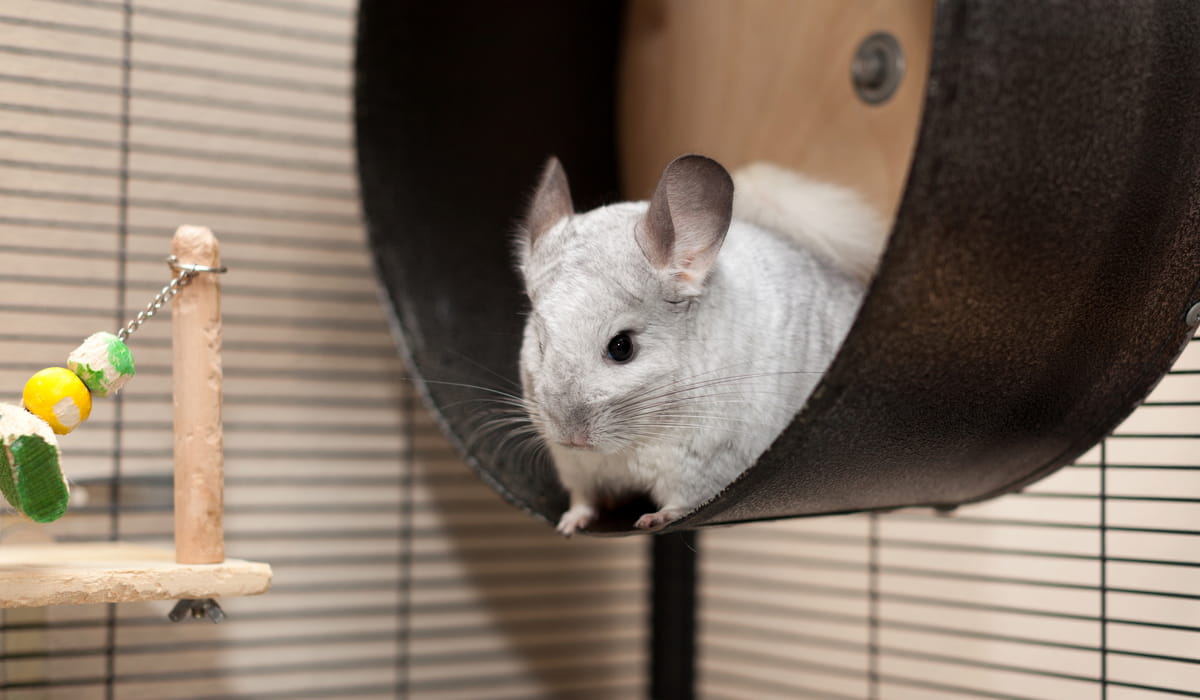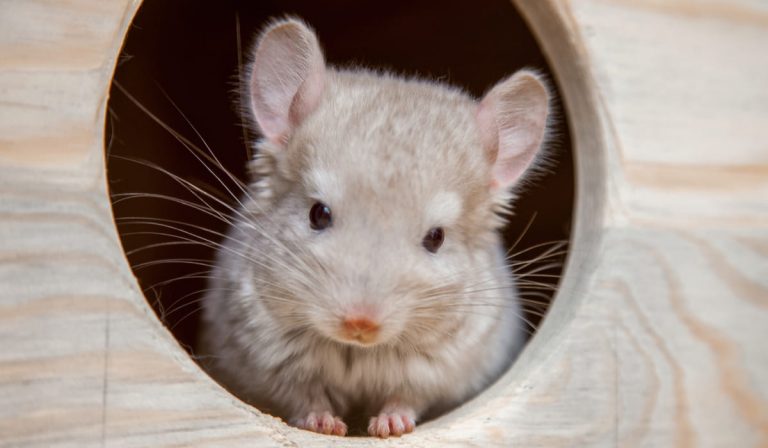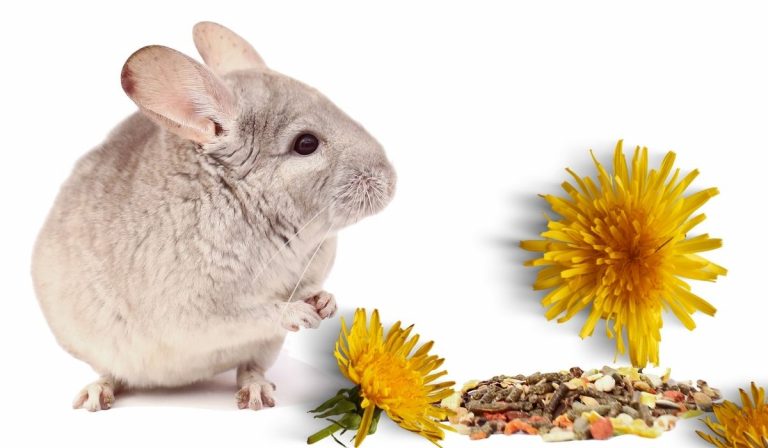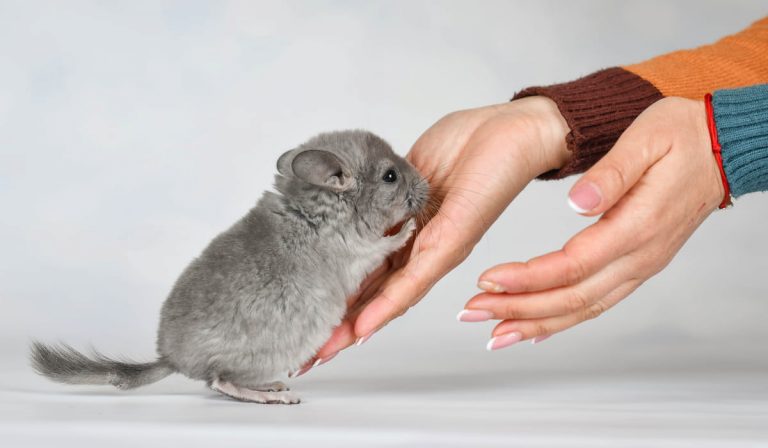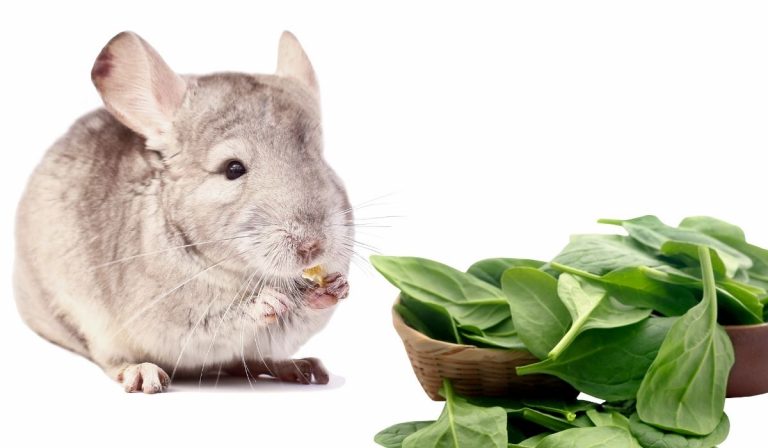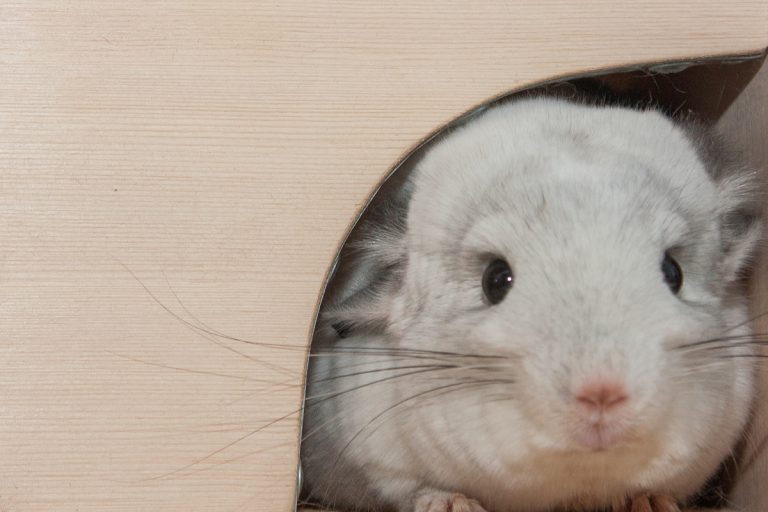Can Chinchillas be Pets?
Chinchillas are rodents just like guinea pigs and rabbits. They are extremely cute and cuddly. If you can, you should definitely consider keeping chinchillas as pets.
Chinchillas make awesome pets. Raising chinchillas as pets has a lot of advantages over raising other animals as pets. For example, chinchillas are not noisy and they don’t need a lot of attention during the day.
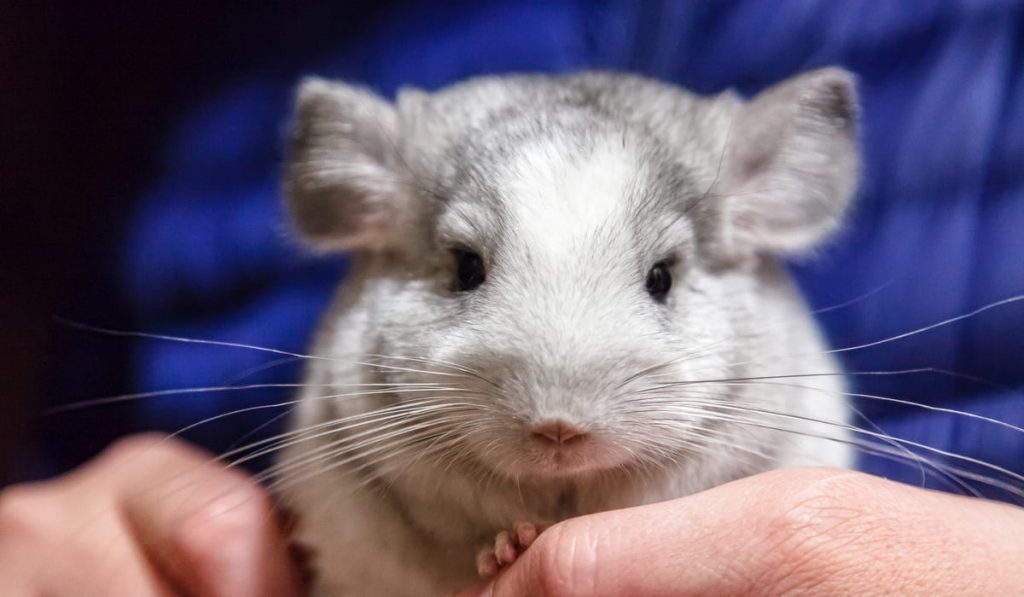
Why you should raise chinchillas
Here are some cool reasons to choose chinchillas as your next pet:
1. Chinchillas are quiet and calm
You will not wake up at night because of your chinchillas disturbing the neighborhood like other pets such as dogs. Even though chinchillas are active in the evening and at night, they do not make loud noises.
If you are someone who wants to keep a pet but loves peace and quiet, keep chinchillas.
2. Chinchillas can be potty trained
When you raise chinchillas, you can potty train them so that they do not pee on and contaminate their food.
Potty training your chinchillas also saves you from changing their bedding as often as if they aren’t potty trained.
3. Feed for chinchillas is cheap and easy to get
Chinchillas are herbivores. This means that you do not have to buy expensive feed for them.
Most animal feeds are expensive because animal protein is expensive. Most chinchilla pellets are made of hay, alfalfa, grains, etc.
4. Chinchillas do not need attention when you leave for work
Chinchillas are crepuscular. This means that they are active in the evening. As crepuscular animals, chinchillas rest during the day.
When you leave for work or school, you do not have to worry that your chinchillas will feel lonely or make a mess because they are resting.
5. Chinchillas are very easy to raise
Chinchillas are among the easiest pets to raise. They do not need a lot attention like fish, your neighbors will not ask you to pick the poop of your chinchillas off their lawn as in the case of dogs, and your chinchillas will not scratch you like cats and other pets.
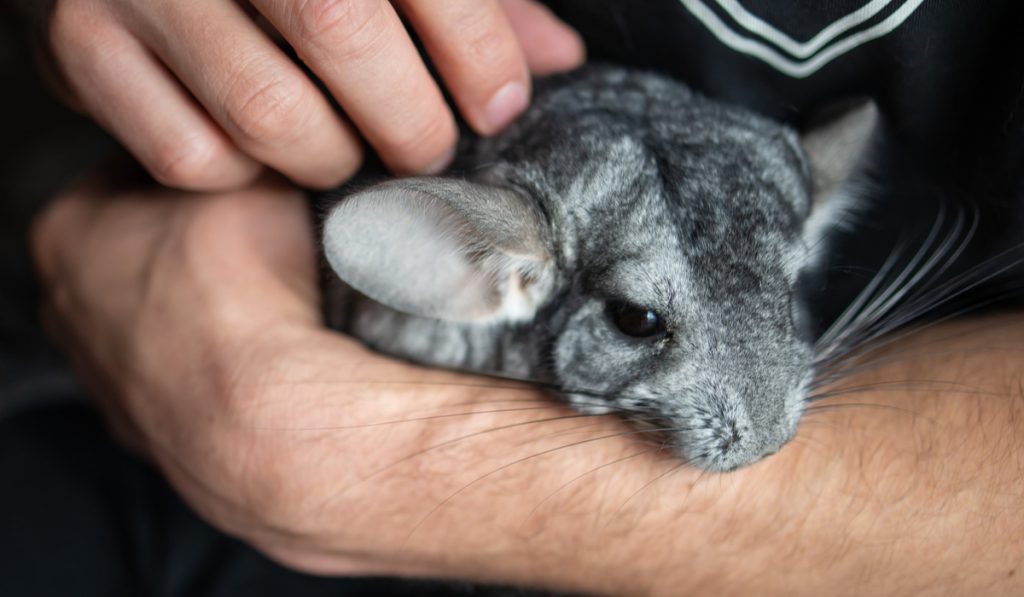
What you need to raise chinchillas
Here is a list of easy-to-get items to raise chinchillas:
- A Cage: You will need to keep your chinchillas in a cage. The cage should be at least 24 by 24 inches. It is also recommended that the cage has shelves or a ladder.
- Bedding and Litter: Just like many other pets and animals, your chinchillas will need bedding to feel comfortable. Bedding also absorbs smell and moisture from their poop and urine.
- Dust Bath: High humidity in your home can increase the rate of moisture absorption by the fur of your chinchillas. To keep their fur dry, give your chinchillas a dust bath often.
- Chew Toys: Just like other rodents, the incisors of your chinchillas grow continuously. To keep the growth of their incisors under control, give your chinchillas a chew toy.
- More than One Chinchilla: Chinchillas are social, so they can get depressed if you keep only one as a pet.
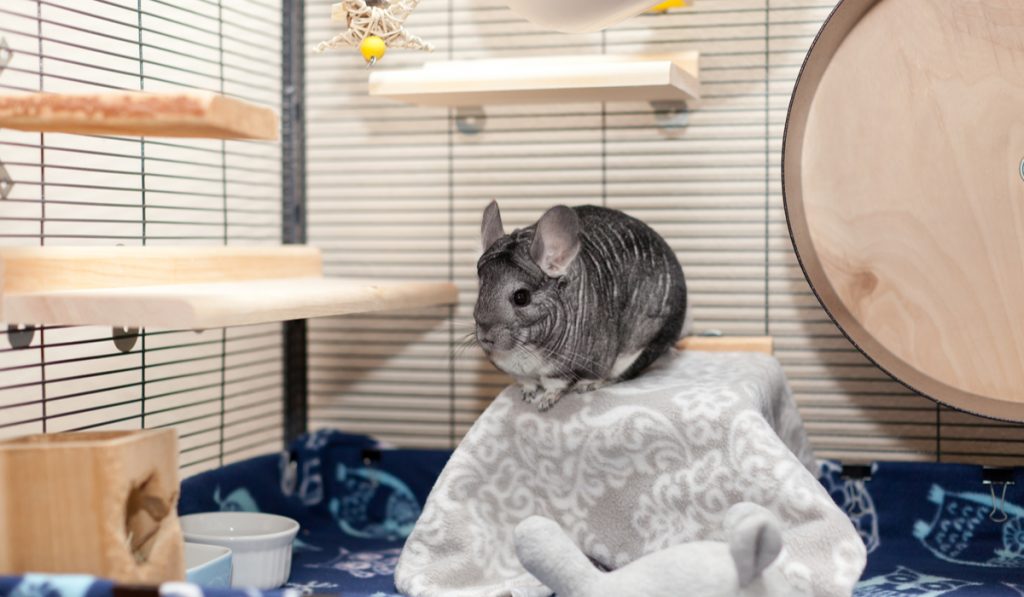
How to raise and care for chinchillas
Use the awesome tips below:
1. Feed your chinchillas the right diet and change their water often
Chinchillas are herbivores, so you should give them a plant-based diet. Examples of what chinchillas can eat are:
- Grass
- Hay/straw
- Fruits
- Vegetables
- Cereal grains
The chinchilla diet should be rich in fiber to aid in digestion and prevent obesity. Straw and hay have a lot of fibers, so it is a great idea to provide your chinchillas with a lot of straw and hay.
2. Potty train your chinchillas
When you potty train your chinchilla, you make raising chinchillas easier for you. Potty training chinchillas is more effective for peeing than for pooping as chinchillas poop a lot.
Follow the steps below to potty train your chinchillas:
- Keep a litter box (with litter inside) in a popular spot where your chinchillas pee a lot
- Place some chinchilla urine-soaked bedding on the litter box
- Whenever your chinchillas go somewhere else to pee, collect some of the soaked bedding and place it on the litter box
The process is not as easy as it seems, but in a few months, your chinchillas will accept their new peeing spot. It is recommended that you potty train your chinchillas when they are young.
3. Give your chinchillas clean and dry bedding
You should change the bedding of your chinchilla cage every 2-5 days according to the type of bedding and the rate at which the bedding becomes wet.
If you potty train your chinchillas, you can use the bedding for a longer time.
Examples of materials for chinchilla bedding are:
- Wood shavings
- Hay
- Straw
- Dusted sawdust
- Shredded paper
Always make sure that the bedding is dry.
4. Give your chinchillas a dry dust bath
Humidity and moisture are bad for chinchillas as chinchillas originally live in the Andean mountains of South America where there is relatively low humidity.
High humidity can cause bacteria to grow in the fur of your chinchillas. To keep your chinchillas dry, they need a dust bath.
The dust bath of your chinchillas should not be too deep. About 6 inches is okay.
5. Pet and give your chinchillas treats
Why are they your pets if you cannot pet and give treats to chinchillas? You need to play with them and develop a strong bond with them.
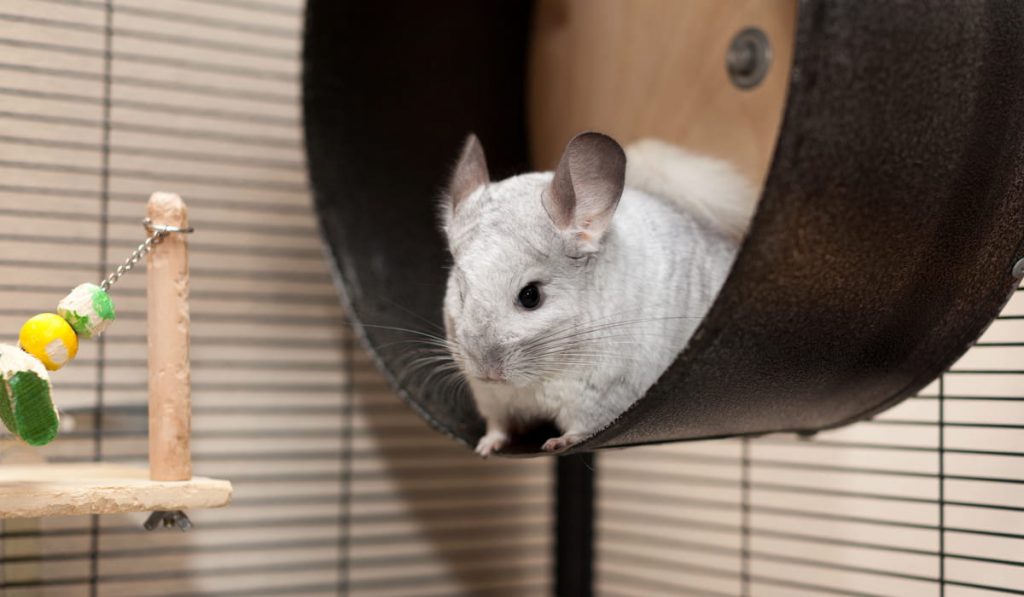
What you should know when raising chinchillas
Here are some things that you should keep in mind when raising chinchillas:
1. Do not pursue or chase your chinchillas
If you run after your chinchillas, they will get scared of you and it will be difficult to develop any bond afterward.
Instead of chasing your chinchillas to bring them back into their cage, you should attract them with treats.
Your chinchillas should come to you instead of you running after them.
2. Potty training chinchillas takes time and effort
Note that it can take months to potty train chinchillas. This is because chinchillas are rodents and they are not as intelligent as dogs and other advanced pets.
Sometimes, it may feel like you are not giving enough effort in potty training them. Just keep trying and don’t give up.
3. Chinchillas need exercise
In the evening (when they are active), you should free your chinchillas from the cage so that they can explore the room and home (under your supervision).
Your chinchillas can become obese if you don’t give them some time out of their cage.
Make sure that you watch your chinchillas so that they do not eat anything harmful.
Related Questions and Answers
1. Can you raise chinchillas outside?
Chinchillas cannot live outside. You should not raise your chinchillas outside because:
- The Humidity Is High: High humidity can cause infections by microbes that dwell in the fur of your chinchillas. You want to prevent the population of these microbes from growing by reducing the humidity.
- Direct Sunlight Is Bad for Chinchillas: Chinchillas have a lot of fur and are naturally adapted to lower temperatures. Exposing your chinchillas to direct sunlight can cause stress.
- Chinchillas Can Get Lost: Chinchillas are very curious pets that can get lost if you do not watch them closely. Remember that they are active at night.
Raise your chinchillas in a cage indoors.
2. Can you raise chinchillas with other pets?
You can raise chinchillas with other rodents and similar pets. For example, guinea pigs and rabbits make great companies of chinchillas.
Remember that chinchillas are herbivores, so you should raise only herbivorous pets with them.
3. Can you feed your chinchillas with feed made for dogs or cats?
Dog and cat feed is made with animal products such as bone, fish, etc. Herbivores such as chinchillas cannot easily digest animal products.
Your chinchillas can get sick from deficiency of nutrients if you give them feed made for carnivores and omnivores.
4. Can you take your chinchillas out?
Sooner or later, your chinchillas will have to step out for their vet appointment and for other activities. It is up to you.
Remember to give your chinchilla a dust bath afterward.
5. Do chinchillas need shots?
While chinchillas need to visit the vet, they do not need shots like other pets. You should, however, listen to and follow the words of the vet.
Final Thoughts
Chinchillas make great pets and you should keep them if you can.
Remember to feed your chinchillas with the right plant-based diet, give them dust baths, and play with them as often as you can.

